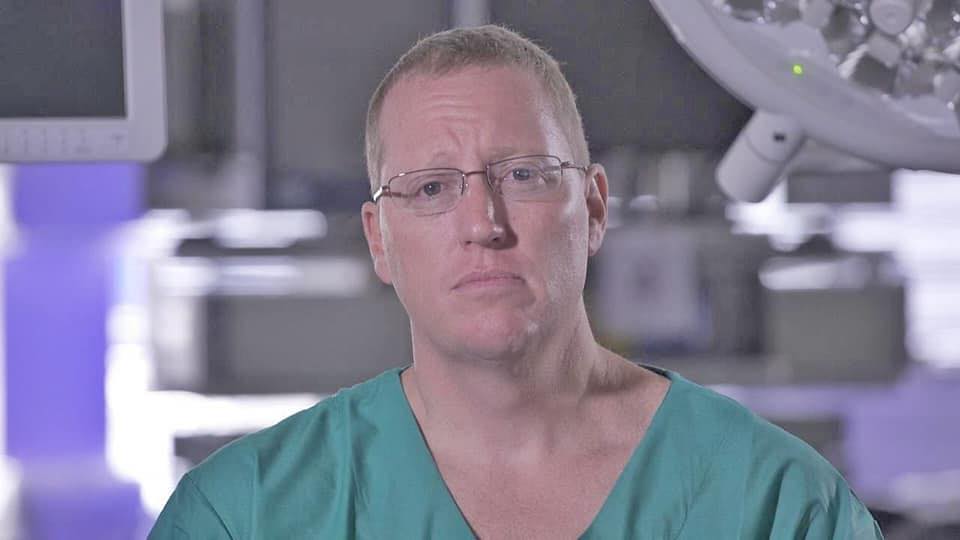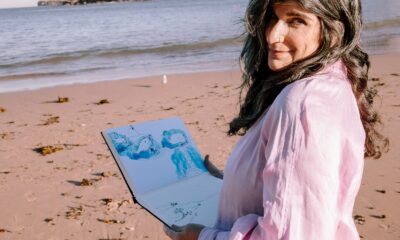
Lifestyle

Forensic pathologist’s new book cuts to the chase
Forensic pathologist Ryan Blumenthal has just brought out a new book titled Risking Life for Death – Lessons for the Living from the Autopsy Table. The SA Jewish Report speaks to him.
What drew you to become a forensic pathologist?
Suffice to say, there was simply no other discipline which could contain my unique kind of “mindedness”.
What does it take to do this kind of work?
I can tell a lot of what is happening in the world just from noticing what’s happening on my autopsy table. I can tell if a new gang has moved into the neighbourhood. I can tell if there’s a new or emergent drug or disease, and I can even get a good sense of the health (physical, mental, and psychological) of the nation without necessarily venturing outdoors. You need resilience in the face of the reality of death and tragedy. It’s a calling, requiring absolute professionalism. One of the greatest challenges is to maintain a positive, optimistic attitude.
What inspired you to write the book?
Collecting data for Risking Life for Death was like having a thousand puzzle pieces in a box. Until you put all the pieces together, you really have no idea what the final picture looks like. And now, at long last, after years of rearranging those puzzle pieces, they finally make sense to me. My duty was to escort the reader down my long path of discovery.
Why now?
I felt it was a moral obligation. There remains so much injustice in this world because some truly evil people share this planet with us. In the battle against the forces of evil, forensic pathology isn’t some side show, it plays a central role.
How did you get to the title?
It highlights the many dangers forensic pathologists are exposed to daily. As we try to unravel the puzzle of someone’s death, we often face life-threatening infections, toxic gases, and the hazards associated with high-profile cases – in effect, risking our own lives to solve someone else’s death.
What exactly is the Locard’s Exchange Principle, and why would knowing about it make a difference to our lives?
It’s the bedrock of modern forensics. Everyone’s favourite detective uses it. Dr Edmond Locard formulated the basic principle that with contact between two items, there will be an exchange, or stated another way, every contact leaves a trace. The principle holds, in essence, that the perpetrator of a crime will bring something into the crime scene and leave with something from it, and both of these can be used as forensic evidence.
I argue that everything can be trace-and-tracked back to its origin using Locard’s Exchange Principle. I believe the dead have so much to teach the living. I believe that much of the unhappiness in this world is preventable. I also believe that an understanding of “contact theory” can help provide us with a better philosophy for growing older.
What are the dangers forensic pathologists face?
In Africa, every day you go to work you’re at risk: you never know what may be lurking inside – or outside – a dead body. I have been present when a cocked-and-loaded gun has fallen out of a victim’s trousers, and I have found sharp knives, needles, and even screwdrivers on bodies.
Other hazards are Hepatitis, HIV, and other blood-borne diseases, as well as exposure to dangerous biologic agents such as other highly infective viruses or bacteria. There could be dangerous foreign bodies hidden within the body: hidden sharp objects; needle fragments in intravenous drug users; implanted cardioverter defibrillators which can shock the pathologist; or dangerous bullets.
Sometimes, we’re exposed to dangerous chemicals: nerve agents; blood agents; blister agents; heavy metals; volatile toxins; pulmonary agents; incapacitating agents; explosives; flammable gases; poisonous industrial gases; or corrosive industrial acids and bases. We may even be exposed to radioactive beads from thyroid or prostate cancer patients.
Often, huge amounts of money are at stake, depending on whether a death resulted from injury at work, whether a shooting was accidental or suicidal, or whether a heart attack occurred before, during, or after a motor vehicle accident.
Occasionally, we have to deal with a “hot potato” case. This is a case that’s so politically charged and highly publicised that no-one wants to deal with it. We may even be asked to investigate war crimes, high-profile assassinations, mass disasters, and armed conflicts. For these cases, one needs a really thick skin. Our patients may have died due to political, gang, or mafia-related agencies.
Have you ever had to give up as you simply couldn’t find a clear cause of death?
As a forensic pathologist, you obviously never want to miss a murder. Therefore, we treat every single case as a possible murder. In South Africa, because we don’t have all the fancy gadgets, we’re limited in how many special investigations we can do. Yet, you would be surprised by what can be diagnosed with the most basic of senses: sight, hearing, touch, and smell.
There are two basic rules: assume that murderers are cleverer than you, and assume that they know all the methods. They may have downloaded the latest forensic journals, or could even own copies of all the forensic homicide investigation books. They could also have watched shows like CSI or The Mentalist.
Generally speaking, not that much is new in murder. South Africans mostly die from firearms, blunt-force trauma, and sharp-force trauma. The biblical ways of killing and dying are still very much alive and well in these modern times. But some causes of death we’ll never know.
What are the other complications you face in South Africa?
The fancy equipment one sees on hit television series such as CSI simply isn’t available, there are regular labour issues such as strikes, there’s often no electricity (the result of loadshedding), running water, or insect spray, and there are flies. Lots and lots of flies.
Who is the book directed at?
Since the publication of my first book, Autopsy: Life in the Trenches with a Forensic Pathologist, people have sent me long messages about how the book affected them. There came a flood of Facebook friend requests, and I received countless selfies of strangers on Instagram holding my book. One of these was from someone in a maximum-security prison whose picture was taken in full prison uniform with handcuffs on, while holding my book.
The youngest person to claim to have read my book was seven years old, while the oldest, was 96. At the time of writing, I have received countless questions and comments from as far afield as Marion Island. My new book is written for the same diverse audience.
How does being Jewish play out in your work and life?
If you hear advice from grandparents or elders, odds are that it works most of the time. So too with the ancient religions – there’s a lot of wisdom in Judaism, especially when it comes to one’s “moral compass”. One of my favourite quotes is from Rabbi Shneur Zalman of Liadi (1745-1812), the founder of Chabad. It pretty much sums it all up: “A little bit of light dispels a lot of darkness.”











David Freund
August 12, 2023 at 7:41 am
Just questions on Ryan Blumenthal the pathologist. Found the article very interesting. Plan to get the book.
A friend here in Brighton sadly passed away last year, David Melchor Consultant Pathologist at the Royal Sussex Hospital and Medical School was trained at Groote Schuur Hospital Cape Town and in England. A fine professional and a lovely person.
I shall let his widow know about the book as am sure it will give her much interest.
The other question, is Ryan by any chance related to the late Dr Lionel Blumenthal a very good family friend, and a wonderful General Practitioner with a practice in Diep Revier, Cape Town. He had two sons, Barry and Ian, who I believe are doctors, and a a lovely wife and mother the late Beryl. Lionel would go after his rounds and surgery were completed into the.Cape Flats and see to African and Mixed Race people and not ask for anything in return. Sometimes they would insist on giving him a small gift. An inspiration to us all.
My parents Dr Hans and Kitty Freund both professionals in education were close friends. Just a long shot.
Looking forward to reading the book.
David Freund.
Brenda Rohde
August 29, 2023 at 5:08 pm
Please can I get the Professors email address